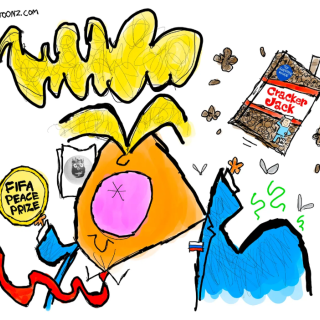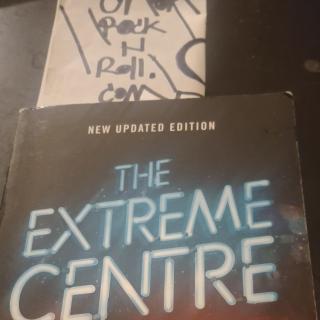Advertisement
A gay couple’s marriage is thrown into crisis when one of them begins a passionate affair with a younger woman.
After completing his latest project, filmmaker Tomas (Franz Rogowski) impulsively begins a heated love affair with a young schoolteacher, Agathe (Adèle Exarchopoulos). For Tomas, the novelty of being with a woman is an exciting experience that he's eager to explore despite his marriage to Martin (Ben Whishaw). But when Martin begins his own affair, the mercurial Tomas refocuses his attentions on his husband. Set in contemporary Paris, "Passages" charts an escalating battle of desire between three people, where want is a constant and happiness is just out of reach. The film creates an insightful drama exploring the complexities, contradictions, and cruelties of love and longing.
That's precisely what occurs soon after "Passages" introduces its protagonist, Tomas, a German film director who has just finished shooting his latest feature. At the wrap party for the film, Tomas grows irritated with his husband, Martin, who isn’t keen to join him on the dance floor. Overhearing the squabbling couple, a young woman named Agathe offers to dance with Tomas instead. Under Agathe’s encouraging tutelage, Tomas’s initial physical stiffness melts away. A mutual attraction takes hold that ultimately leads them to Agathe’s bedroom later that night.
The affair quickly heats up and an increasingly smitten Tomas decides to move in with Agathe. But when Tomas discovers that Martin has started seeing someone else, he cannot abide the idea of his husband not wanting him anymore. His jealousy aroused, Tomas grows distracted in his new relationship with Agathe. He refocuses his energy, emotional, sexual, on his longtime partner, heedless of the impact his actions will have on them all.
Through the character of Tomas, the film explores the emotions and behavior sparked by desire. What does it feel like when you have a passion for something that you can’t quite attain? How does that fuel one’s life? For Tomas, attaining that something becomes everything. Then, when he has it, he suddenly realizes he wants something else. And that something else keeps shifting. There’s a hole that can never be totally filled.
Tomas is trying to control his life and make firm decisions and move through life with energy and determination. At the same time, he has this silly bike that's too small, and he’s wearing this huge jacket. When we see Tomas struggling but somehow having this little dance on the bike, it doesn’t really matter at this moment if he has lost everything. He’s not biking away from something or towards something. It's a protagonist who’s complicated, somebody who’s not always trying to do the right thing and do what’s best for everybody. Tomas is looking out for himself. There’s a lot that revolves around you, and you can become used to that. We don’t really know why, but Tomas is struggling with seeing others, respecting others, relating to others and himself. He’s distracted by the here and now and everything that brings with it.
While Tomas is mercurial and impulsive, Martin is grounded and even-tempered. Martin is an Englishman with his own creative identity as a graphic artist who runs a printmaking studio. He loves his husband and calmly weathers Tomas’s ups and downs. Their marriage has its own language and its own boundaries. They’ve built a very cozy life together that will be stretched at this moment by the ways in which Tomas pushes the edge.
Martin just is besotted, as we can be in life. He really loves this man. That doesn’t mean that he doesn’t get irritated and angered. But in his mind Tomas is this extremely special person, and he’s never going to find anyone else like him. So Martin doesn’t want to lose him, and he’ll contort himself a bit to accommodate what is being asked. It’s only over the course of the film that the thoughts that are in the back of his mind, that he might try to push away, begin to emerge. That maybe this relationship is not making either party happy.
The third person of the triangle, Agathe, is a schoolteacher who comes to Tomas’s wrap party with her soon-to-be ex-boyfriend, a crew member. She’s not part of their world of film and art. She’s intrigued by it, but she’s not an actress who’s trying to get something out of her relationship with Tomas. Agathe is still young enough to be making some mistakes and figuring things out, but she has the innate intelligence and emotional depth to learn from her experiences. At this moment, and she also gives us a glimpse of Agathe as she might be later in life, looking back with understanding and empathy. She’s very sweet, and an outsider to the world of these two men.
"Passages" is an exploration of human beings and the complexities of love and relationships. Set in Paris, "Passages" follows the shifting dynamics of a romantic triangle that's fueled by love, desire and a longing for the unattainable. The film creates images that are rich in meaning as he tells a very human-scaled story. It's about a world where fictional narrative is enriched by the personal experience that all bring to their craft. It’s driven by the nature of the three characters, each of whom desires the other at a point at which they're no longer interested. It’s a battle of desire. A couple who are solidly together but reach a point when the relationship is in a crisis. The film looks at that moment when you really want to be with your partner, but you also want to be free to maybe fall in love again. And you can’t say goodbye, and you don’t know what’s the right thing to do. We're struck by how desire is fluid. You have all this history which leads you to certain moments and certain kinds of relationships. But then you’re in the present and something else can happen.
The screenplay is construct as a narrative of emotional suspense. There’s always an absence that moves the story along and builds the drama. Who has what when, and when do they not have what they want, and what will they do to get it? How do you separate your art from your life? Drama is found in the gap between what you've and what you want. How do you not have shame about your worst instincts? Because we all have those instincts.
The camera lingers with the film’s characters even as it gives the audience glimpses of the world around them. But the sheer fact of being consumed by your own egocentric needs and desires can create a lot of harm. We find similarities to the work of Josée Deshaies. The images Josée creates in "Before I Forget" (2007) and "Saint Laurent" (2014) are a very special kind of cinema, where how people move across rooms is part of telling the story. It’s how we understand space, how we understand the figure in space. "Passages" implicitly considers how the line between art and life can grow blurry.










